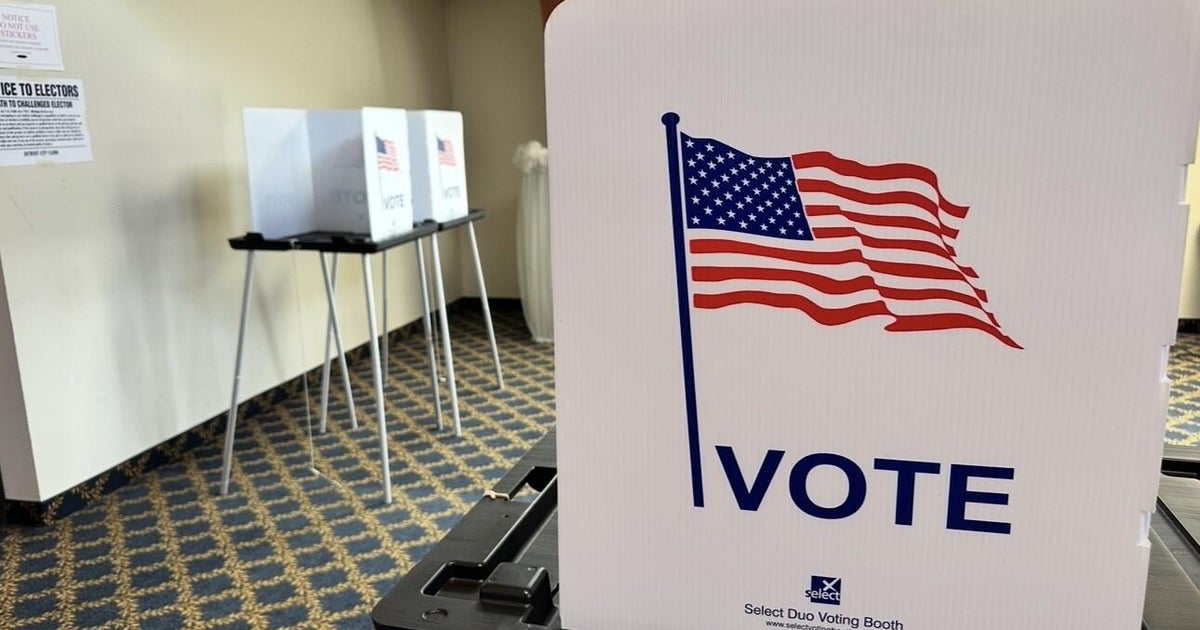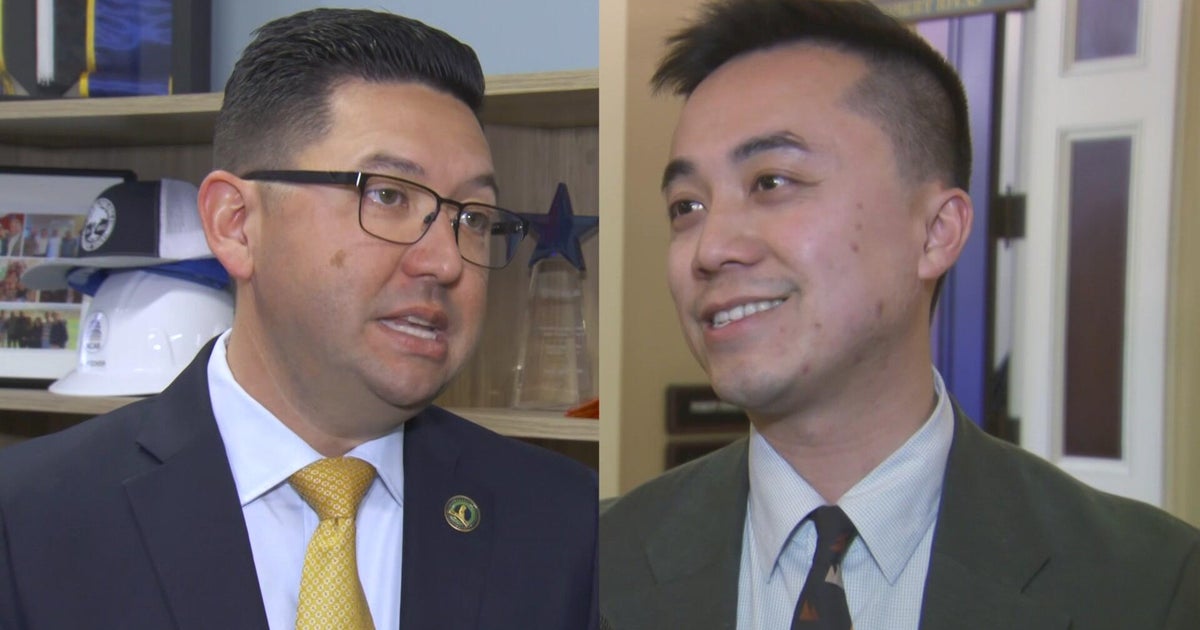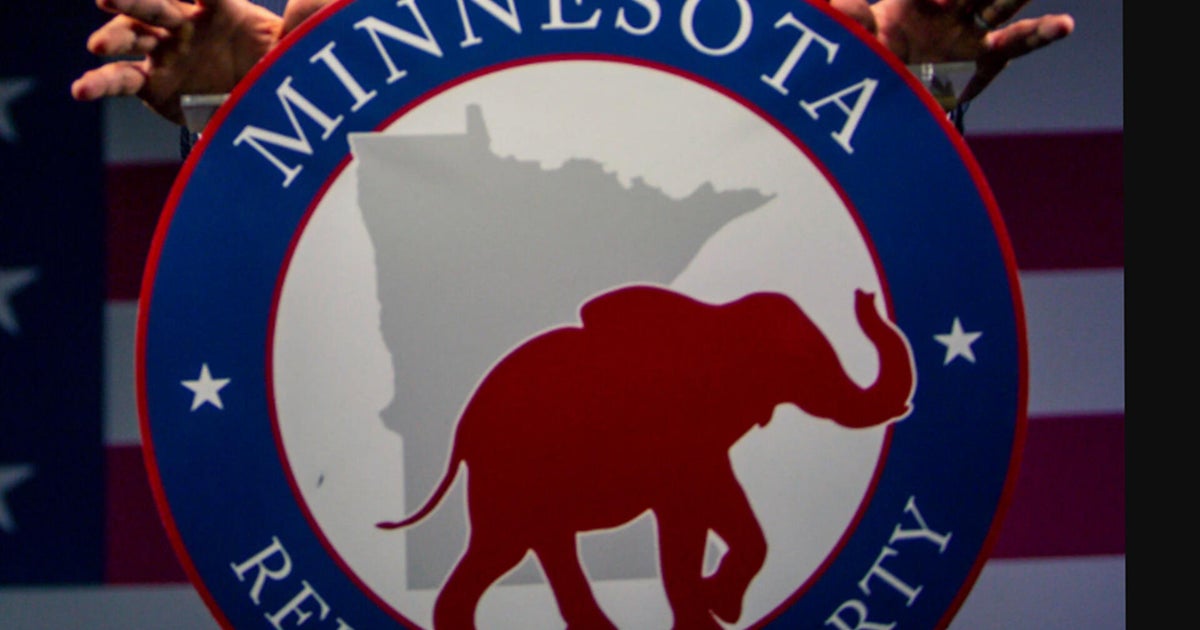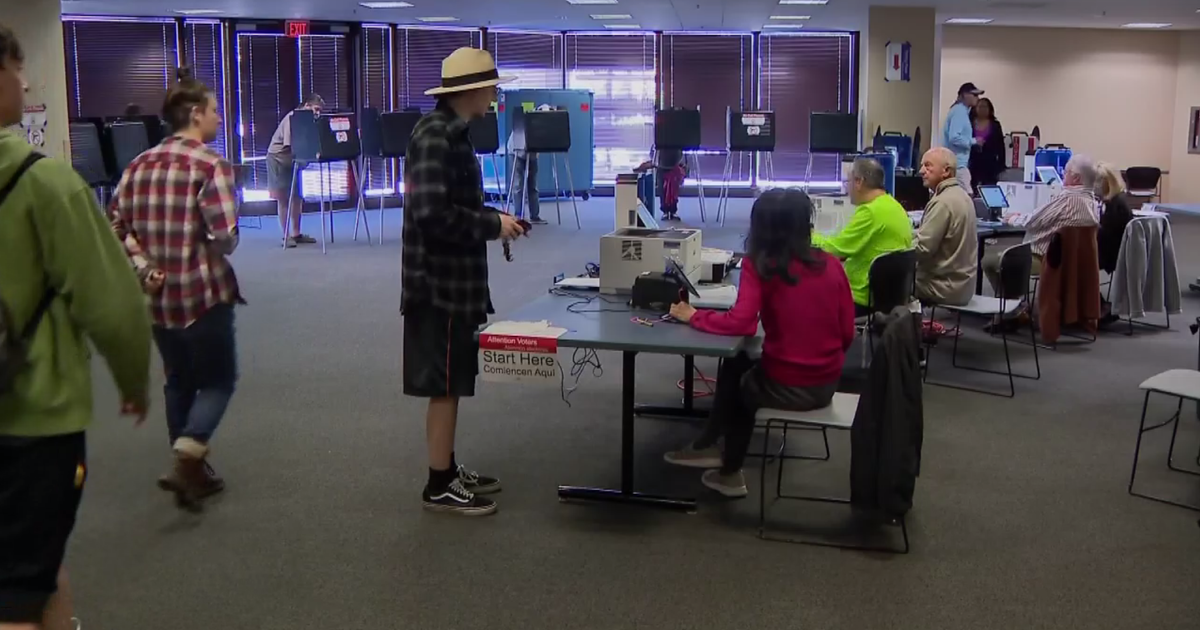Why It Matters: Michigan's Ballot Proposals
By Jeff Karoub, Associated Press
DETROIT (AP) - Six contentious ballot proposals are before Michigan voters on Nov. 6, including several well-funded measures backed by special interest groups and five that would require amending the Michigan Constitution.
Here's a breakdown of each:
PROPOSAL 1:
This labor union-backed referendum asks voters whether to preserve a state law passed last year by the Republican-led Legislature and signed by GOP Gov. Rick Snyder that allows the governor to appoint so-called emergency managers to run broke cities and school districts. The emergency managers have sweeping authority to cut spending, sell assets and tear up contracts without the approval of elected officials.
Where they stand:
Supporters of the law are urging "yes" votes on Proposal 1 because they say the law is a necessary to fix financially struggling communities and schools. Snyder has said he respects the public's right to have a vote but warned that solutions for distressed local governments will be even "more painful" if the law is suspended.
Critics of the law are urging "no" votes on the proposal because they say the law represents a state power grab that usurps local elected officials. A union-backed group called Stand Up for Democracy collected more than 200,000 signatures to get the referendum before voters.
Why it matters:
The proposal serves as a referendum on what Republicans in Lansing would consider a policy achievement. The law known as Public Act 4 is the third and strongest state law to date designed to let emergency managers take over local governments.
Neither side in the debate wants to see a local school district or municipality fail, but Snyder and others claim that's exactly what could happen without such a law. They present the law as a lifeline, rather than a takeover. But opponents argue the law leads to a loss of control and rights once shared by local leaders and laborers. They also argue that they deserve a seat at the negotiation table and have helped craft contracts that include sacrifices for the greater good.
Emergency managers are operating in Benton Harbor, Flint, Pontiac and Ecorse, as well as in school districts in Detroit, Highland Park and Muskegon Heights. The city of Detroit, struggling with record deficits for years, narrowly avoided such a takeover earlier this year but has entered into a so-called consent agreement with the state that's provided for under state law.
---
PROPOSAL 2:
This ballot initiative seeks to strengthen collective bargaining in the state. It would amend the constitution to guarantee the right to organize for the purpose of collective bargaining with public and private employers.
Where they stand:
Supporters, including a group called Protect Our Jobs, say they want a voice to negotiate for fair wages, benefits and working conditions. Union leaders fear Michigan's GOP lawmakers eventually will make a push for right-to-work legislation, which bars unions from collecting mandatory dues from workers. They also object to further legislation they see as chipping away at union powers affecting benefits and school staffing.
Opponents contend the constitutional measure would make union leaders more powerful than elected officials. Michigan Attorney General Bill Schuette has said it would impose rollbacks of state and local governments' ability to set employment terms and get budgets under control, wiping out some 170 laws and even invalidating other parts of the constitution. Another concern for critics is that it alters the constitution and therefore restricts lawmakers from being able enact any legislation affecting those rights. A pro-business coalition called Hands Off Our Constitution has fought the proposal, contending its wording was too broad.
Why it matters:
This ballot initiative's backers say it's essential in a state that's served as a longtime bastion for the labor movement. After Wisconsin recently stripped public employees of collective bargaining rights and Indiana approved "right-to-work" legislation, initiative supporters say the best defense is a one-of-a-kind offense. No other state has guaranteed bargaining rights through a statewide ballot initiative, though several did so in their constitutions decades ago.
The nonpartisan, nonprofit Citizens Research Council of Michigan says passage of the proposal could increase costs in a time of declining revenue for local and state governments. It also could have the "perverse effect" of increasing pressure on governments to move work to lower cost, private-sector companies, the council concludes.
---
PROPOSAL 3:
This measure would require electricity suppliers to generate 25 percent of their power from wind, solar, biomass or hydropower by 2025. If approved, the policy would be added to the state constitution, meaning it could not be overturned by the Legislature.
Where they stand:
Supporters say it's a bold step that would help Michigan keep pace with competing states in clean energy development and create jobs in a sector with big growth potential. The group Michigan Energy Michigan Jobs lists dozens of business supporters, including manufacturers and installers of photovoltaic collectors, solar thermal collectors and wind energy systems.
Opponents argue it would make energy supplies less reliable, sock consumers with higher electric bills and slash rather than grow jobs. Among the critics are the state's two largest utilities, Consumers Energy and DTE Energy, and numerous chambers of commerce. Opposition group Clean Affordable Renewable Energy for Michigan, or CARE, says the policy would force providers to invest $12 billion and customers to pay "thousands of dollars in higher electric bills."
Why it matters:
The initiative represents a way for the Great Lakes State to play catch-up. A report by the Citizens Research Council says 29 other states have renewable energy usage standards and that Michigan's 10 percent requirement is among the "least aggressive." If the ballot initiative passes, Michigan will be the only state with renewable energy requirements in its constitution.
Lawmakers ordered the state's energy suppliers four years ago to generate 10 percent of their electricity from renewable sources by 2015. Consumers and DTE have invested in wind farms, which probably will account for most of the green power they produce. They say the existing deadline is achievable, but the 25 percent requirement would require 3,100 more wind turbines spread across an area 17 times larger than the city of Grand Rapids.
With or without passage of the initiative, the Citizens Research Council said it's likely the cost of electricity in the state will increase in the next dozen or so years because of aging facilities, federal regulations for coal plants and transportation costs that could rise.
---
PROPOSAL 4:
This initiative would amend the state constitution to allow home health workers to unionize, give them limited collective bargaining rights and list them in a statewide registry.
Where they stand:
Supporters of the Keep Home Care a Safe Choice proposal say the proposal will improve the quality of and access to care for the disabled.
Opponents say the measure's real purpose is to provide for collection of union dues from home health workers after GOP lawmakers outlawed that dues collection earlier this year.
Why it matters:
The proposal is the most specifically tailored of three collective bargaining measures on the ballot: It affirms collective bargaining rights for about 42,000 home health care workers.
It's also a bid to counter the law passed earlier this year that spurred a lawsuit by Service Employees International Union Healthcare Michigan, which had been the bargaining unit for home health care aides before the law was enacted. A federal judge sided with the union and protected the contract until it expires in 2013.
The Citizens Research Council says the primary question for voters is whether such remedies should be enshrined in the state constitution or through a referendum on the state law, such as the one on the ballot pertaining to state-appointed emergency managers running struggling cities and schools.
---
PROPOSAL 5:
This ballot initiative would amend the constitution to require a two-thirds vote of Michigan House and Senate lawmakers, or a statewide vote at a November election, to raise or enact state taxes. Approval by a majority of legislators currently is enough to raise taxes.
Where they stand:
Supporters say requiring a two-thirds vote would stabilize the tax environment and foster agreement among legislators. The initiative has been shepherded by the Michigan Alliance for Prosperity and strongly supported by the National Federation of Independent Business, which has argued that an overwhelming need for higher taxes should be met with a corresponding level of bipartisan backing by the Legislature.
Critics argue enshrining the measure in the Michigan Constitution could create obstacles for future Legislatures, force cuts elsewhere and shift increases to fees or other charges. Snyder calls the measure bad policy that could affect the state's ability to manage its finances.
Why it matters:
The so-called supermajority requirement would have affected a recent move by Snyder that's been largely applauded in the business community - not typically known as a pro-tax crowd. Snyder successfully sought to eliminate the Michigan Business Tax and replace it with a 6 percent corporate income tax that two-thirds of businesses don't have to pay.
According to the Citizens Research Council, the proposal would add a fifth tax and expenditure limitation the state constitution. The council says Michigan would join nine states with constitutional requirements for supermajority votes to enact tax increases of any type. The council also found policymakers often look to other revenue sources not subject to the provisions, raising fees and other levies to make up for their inability to raise state taxes.
---
PROPOSAL 6:
This ballot issue requires voters to approve building any new border crossing to Canada. This constitutional amendment was introduced in response to the proposed construction of a Canadian-financed bridge between Detroit and Windsor, Ontario.
Where they stand:
The main proponent and patron of the proposal is Manuel "Matty" Moroun, private owner of the Ambassador Bridge connecting Detroit and Windsor. Moroun, who has fiercely opposed the Canadian-financed span supported by Snyder, wants to add a span of his own and has spent millions on ads through a group called "The People Should Decide." He and his Detroit International Bridge Co. say a new government bridge will cost taxpayers down the road, and they were behind a petition drive that collected more than 600,000 signatures to get it on the ballot.
Voices against the proposal include Snyder, the state's four former living governors and the Detroit and Michigan chambers of commerce. Snyder bypassed the state Legislature and reached a deal in June with Canadian and U.S. officials on a new government bridge. Snyder has said that under the agreement, Michigan isn't on the hook for any bridge costs - which would be repaid to Canada through tolls collected on the Canadian side - and argues Moroun represents a special interest against the interests of 10 million state residents.
Why it matters:
The ballot measure is the latest vehicle for a long-running battle over bridge plans. Both parties want a second bridge, but for different reasons and on different terms.
Moroun says his proposed six-lane span would both enhance and replace the aging Ambassador. Once the new bridge is built, the old one would be closed for refurbishment and then used to accommodate overflow traffic. He says that's sufficient, because cross-border traffic is down since 2000.
Backers of the Canadian-backed bridge say crossings have ticked upward as the economy has improved and will surge long-term. They say a bridge two miles away from the existing span is important to capitalize on trade between the United States and its largest trading partner, as well as relieve traffic congestion at that crossing.
A majority vote of the people on the proposal probably wouldn't settle the long-running dispute. The Citizens Research Council said it may not apply to the Canadian project because Michigan has no direct responsibility for constructing the bridge, and courts likely will have to settle issues over ambiguous language in the initiative if it's passed.
© Copyright 2012 The Associated Press. All Rights Reserved. This material may not be published, broadcast, rewritten or redistributed.







